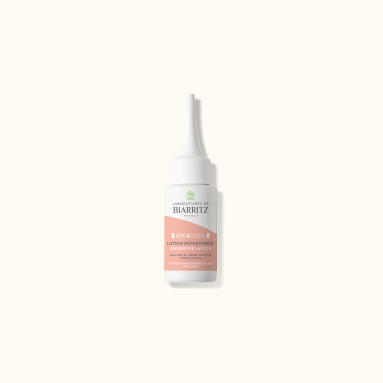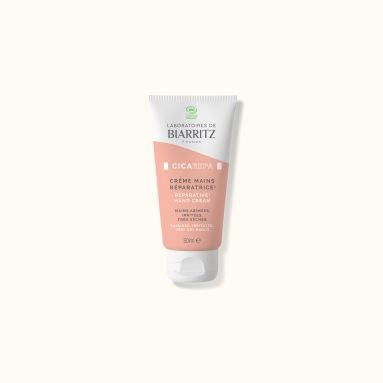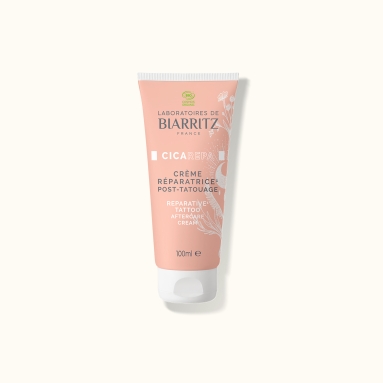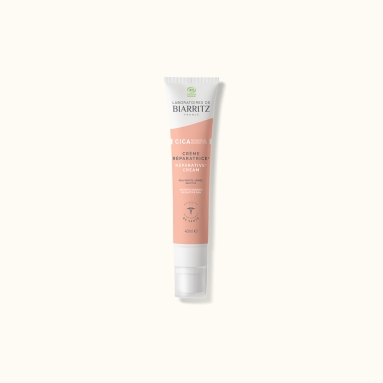Accidents, disease, birthmarks, we can be affected by any of them at different points in our lives. But some visible marks can have more than just physical consequences and can cause visual and psychological discomfort. Luckily, solutions exist.
A Short History
Although tattooing has existed since the neolithic as a decorative or symbolic marking of the skin, the act of tattoo to “restore” is relatively recent. The idea? To camouflage a scar or re-draw an element that has disappeared (nipples, eyebrows, hair, etc.) and to provide a patient with a feeling of normality and of taking back the control over their body. Our team went to meet an expert: Muriel, a restorative tattoo specialist.
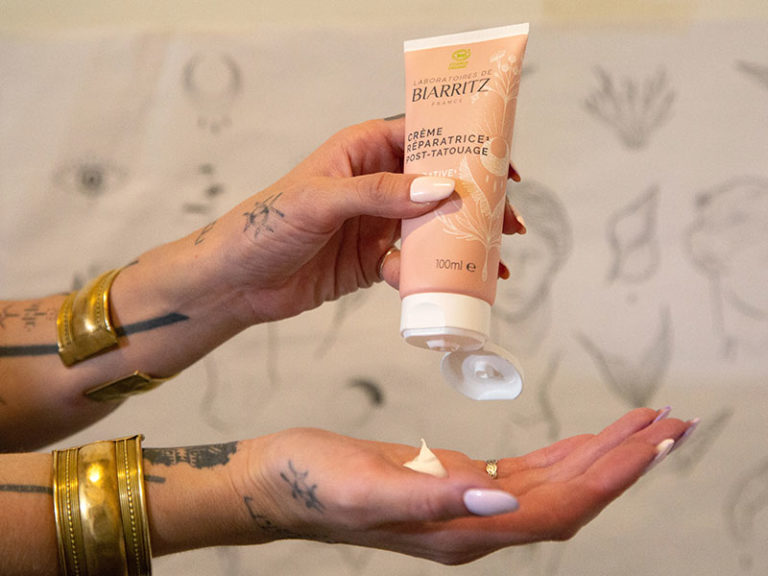
Interview with A Restorative Tattoo Specialist
Specializing in 3D restorative tattoos on breasts (nipples and areola) to help cancer patients recover from breast cancer, Muriel, a Restorative and Beauty Tattoo Artist, also does camouflaging of scarring, vitiligo, or stretch marks. “It is about applying traditional, artistic tattoo techniques to restoring the body or applying permanent make-up.
Creating an optical illusion by playing with specific inks, light, and shadow to bring a breast back to life, hide a scar, a burn, vitiligo… But also make the eyebrows symmetrical, denser, or camouflage older lines that have become orange or gray…” Muriel explains.
Patients must wait until their scar is at least a year old before turning to Muriel’s magic, during which time using reparative care is necessary to accelerate skin regeneration and limit the size of the scar.
When the scar is old enough, and after consulting one’s primary physician, Muriel takes care of her patients in three steps: “an introduction, to talk about needs and expectations; tattooing; and finally touch-ups if needed, after two months of healing.” Indeed, tattooing the skin is not something minor and also requires care. Whatever the kind of tattoo that you are getting, “the most important thing is to respect the natural healing process. You have to moisturize, prevent it from drying so that it doesn’t scab, which might remove the ink” she adds.
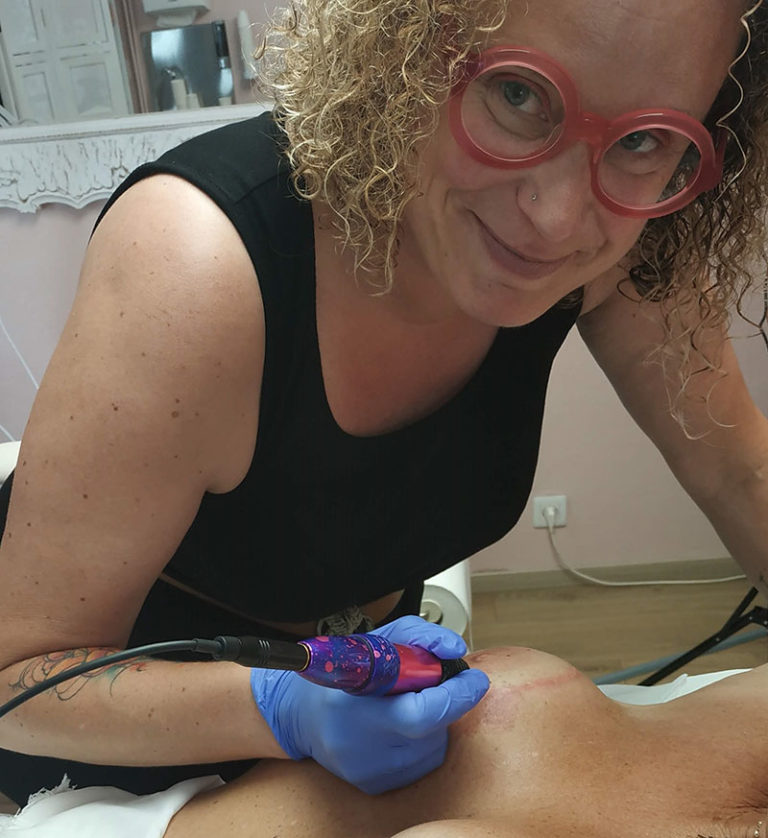
Skincare to Help You Through
At Laboratoires de Biarritz, providing the best the ocean has to offer for skincare that respects your skin is our number one priority. To help you throughout the process, our teams have developed a range of reparative care that will help you soothe and moisturize your skin in any situation.
If you are getting a restorative tattoo, our 100% natural-origin Reparative Tattoo Aftercare Cream repairs, moisturizes, soothes itching, sanitizes, and provides a genuine protective “bandaging” effect thanks to numerous natural-origin ingredients.
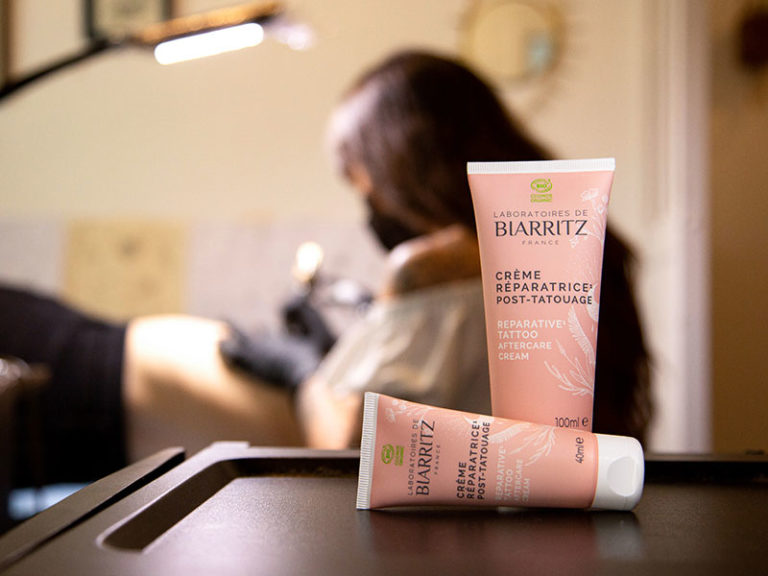
Muriel’s advice for the healing process
What our specialist tattoo artist likes is that the Reparative Tattoo Aftercare Cream “isn’t greasy. It is white, you can see where you put it, then it becomes transparent as you massage it into the skin, which gets all soft and moisturized”.
Her tip for pampered skin after a tattoo? “You need to apply the cream 3-4 times per day. Indeed, because the tattoo rejects ink at first, you need to use a pad to do so. But the pad absorbs part of the cream, so don’t hesitate to reapply it several times a day. Don’t apply it as a thick layer, the skin needs to breathe. Then, whenever you feel like it”.
Now you will have understood, taking care of yourself and your skin is something you need to do every day and will help you climb mountains. The whole team at Laboratoires de Biarritz is committed to providing you with the best organic skincare.
Complete your routine with our selection of products.
La crème de Biarritz: all the benefits of the ocean in one container
Ever dream of a single skincare product that provides all the benefits of the ocean's magic? Well, ...
Replenishing Face Serum: A Hyaluronic Acid Must-Have
Skincare using hyaluronic acid is increasingly sought after. But what is it exactly, and what sets o...
Our top tips for lifelong firm and healthy skin
As time goes by, your skin changes... Skin aging is a natural process that we can’t stop, but, with ...
Hydration, protection and radiance: our team’s favorite skincare picks for the new season!
As the seasons turn and your memories of a well-deserved vacation begin to fade, don't despair! Our ...
